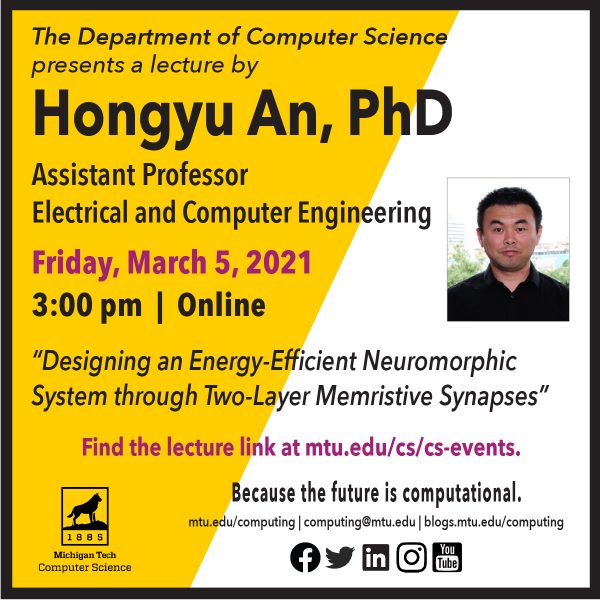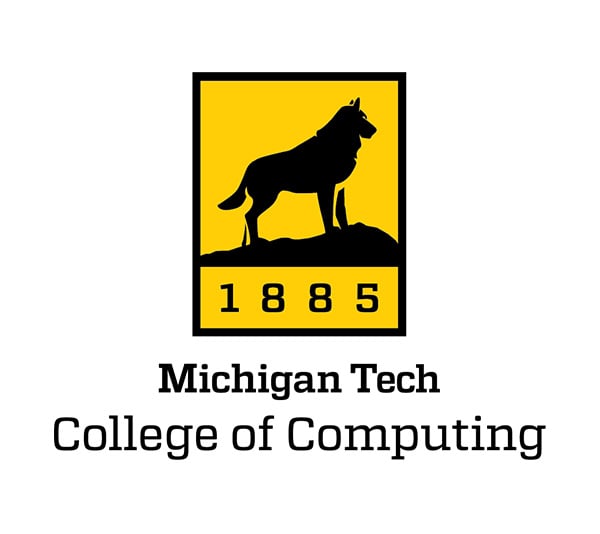
The Department of Computer Science will present a lecture by Assistant Professor Hongyu An, ECE, on Friday, March 5, 2021, at 3:00 p.m.
An’s lecture is titled, “Designing an Energy-Efficient Neuromorphic System through Two-Layer Memristive Synapses.”
An will introduce Brain-inspired Computing, an emerging approach for an energy-efficient artificial intelligent system through hardware and software co-design.
Lecture Title
Designing an Energy-Efficient Neuromorphic System through Two-Layer Memristive Synapses
Lecture Abstract
Recently, deep learning is suffering from the excessive-high power consumption issue, which cannot be resolved alone by software/algorithm optimization. In this talk, An will introduce an emerging concept named Brain-inspired Computing, which is an emerging approach for an energy-efficient artificial intelligent system through hardware and software co-design.
More specifically, An will introduce and discuss applying Three-dimensional Integrated Circuits (3D-ICs), Spiking Neural Networks (SNNs), and memristors to achieving a high-speed and energy-efficient system with the smallest design area. Our memristive synapses are utilized for storing the exported weights of the SNNs that have threshold function as the activation function. The simulation results demonstrate the significant improvement of memristive synapses on design area, power consumption, and latency.
Speaker Bio
Hongyu An is an assistant professor in the Department of Electrical and Computer Engineering at Michigan Technological University. He obtained his doctoral degree in electrical engineering at Virginia Tech. He received an M.S. degree and B.S. in electrical engineering at Missouri University of Science and Technology and Shenyang University of Technology, respectively.
He is the recipient of the 2021 Bill and LaRue Blackwell Graduate Research Ph.D. Dissertation/Paper Award and he was a DAC Young Fellow in 2020. His research areas include neuromorphic computing, energy-efficient neuromorphic electronic circuit design for Artificial Intelligence, spiking neural networks, and machine learning for medical applications.
An is a member of the Institute of Computing and Cybersystems’s (ICC) Center for Scalable Architectures and Systems (SAS).



